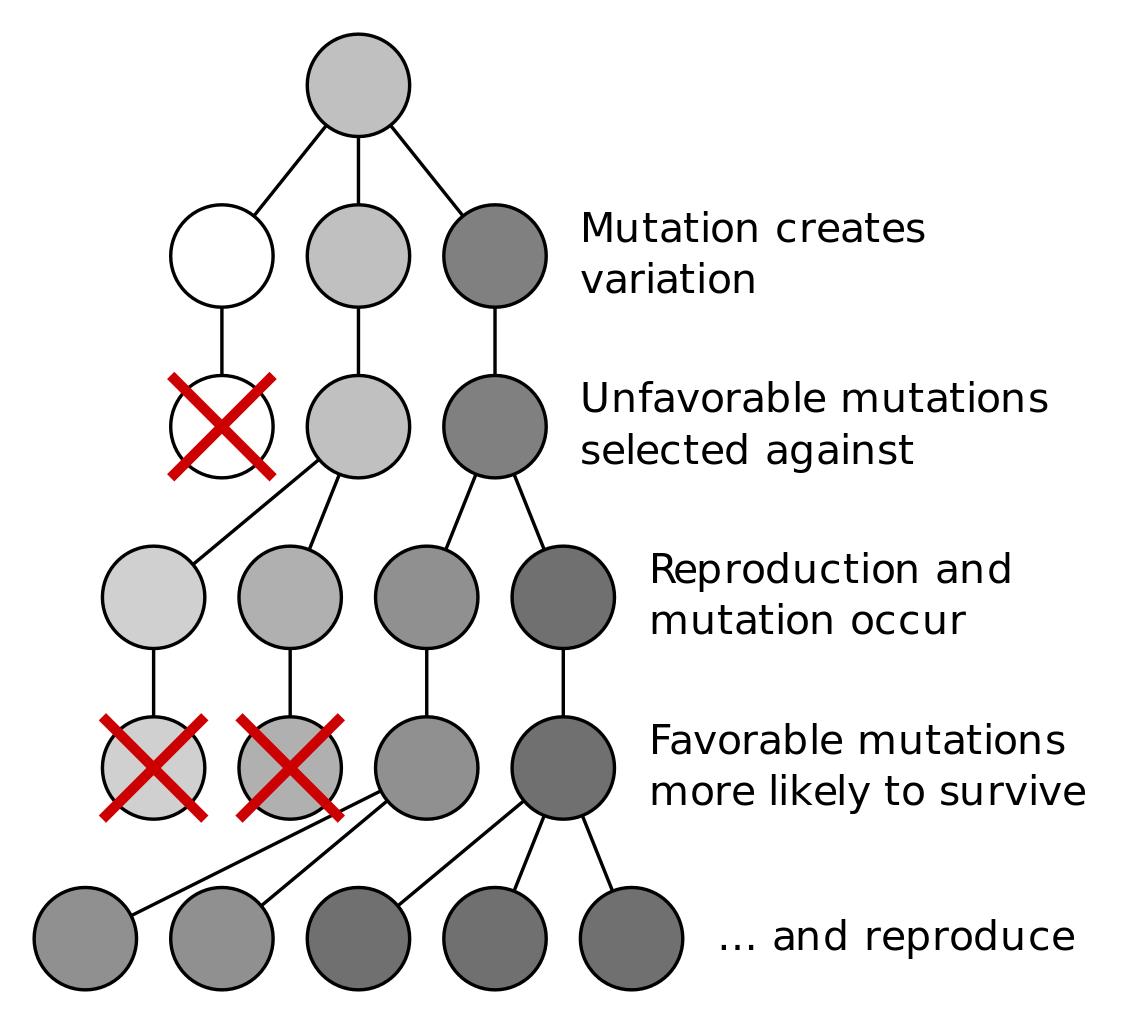Evolution is an eventual change in the hereditary characteristics of biological populations over successive generations. These characteristics manifest in genes that are passed from parent to offspring via reproduction. Evolution is an important topic for the IAS Exam that is featured in UPSC General Studies – III paper.
| The Current Affairs page will have all the updates about the latest events that have happened as of late. Visit the page to stay updated!!
Strengthen your preparation for the UPSC exam by checking the following links: |
Who Developed The Theory of Evolution?
The theory of evolution was conceived by Charles Darwin in the mid-19th century. The whole process was meticulously detailed in his book On the Origin of Species, which was published in 1859. He theorised that evolution by natural selection was first demonstrated by observing that more offspring are produced than can possibly survive.
To back this observation, the following facts about a living organism is presented:
- Traits vary among individuals with respect to their behaviour and morphology.
- Different traits confer different rates of survival and reproduction.
- Traits can be passed from generation to generation.
Evolution & Natural Selection- UPSC Notes :- Download PDF Here
How is Natural Selection and Evolution Related?
To put it in simplistic terms, evolution just means “change over time.” Natural selection is the process through which this “change” happens. It is the driving factor of evolution. All organisms are born with small variations (mutations). But nature selects which of these variations are to be reproduced, therefore eliminating the rest of the variations.
For example, if an organism’s variation helps it survive by finding food by avoiding any harm, then such genes have a statistically higher chance of being favoured and will spread through the population over multiple generations.
Another example is of how the environment acts as a catalyst for evolution through natural selection. If the climate becomes colder or warmer those who cannot deal with the extreme temperatures will perish. Any change in such genes, no matter how remote its chances, will still be favoured. Thus those that inherit this gene will evolve to endure extreme condition over successive generations.
To know more about Bio-fortification, visit the linked article.
The image below represents how evolution through natural selection happens:

To know more about UPSC 2021, visit the linked article
What is the Ultimate Outcome of Evolution?
Evolution impacts every phase of the form and behaviour of organisms, with the most prominent being specific behavioural and physical adaptations. These adaptations increase fitness by aiding activities such as finding food, avoiding predators or attracting mates. In the long term, evolution produces new species through splitting ancestral populations of organisms into new groups that cannot or will not interbreed.
A typical misunderstanding is that evolution has goals, long-term ones to be specific. Realistically, however, evolution has no long-term goal and does not necessarily produce greater complexity. Although complex species have evolved, they occur as a side effect of the overall number of organisms increasing and simple forms of life still remain more common in the biosphere.
To get more topics to visit the UPSC Syllabus page.
FAQ about Evolution and Natural Selection
What is an example of evolution by natural selection?
What are the 4 main components of natural selection?
Get more articles and UPSC preparation material by following the links given in the table below:
Related Links
| UPSC Books | UPSC Monthly Current Affairs Magazine | Current Affairs Quiz |
| Indian Police Service | Make in India | Highest peaks in India |
| Cash Reserve Ratio | Article 356 | Indian Forest Service |
Comments